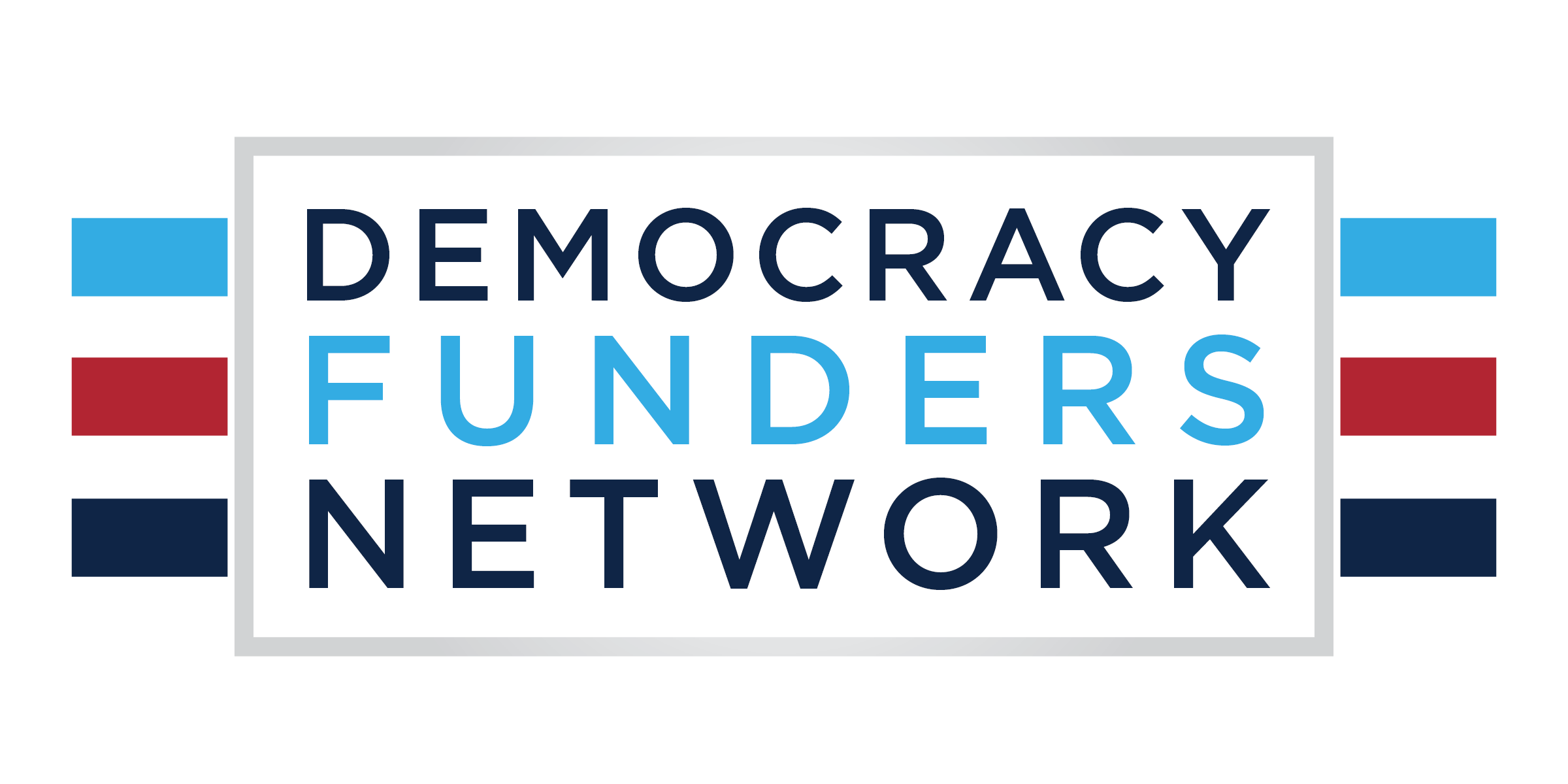Alex Daniels on the critical role philanthropy and nonprofits played in voter education and mobilization in Georgia’s 2021 Senate run-off races. READ MORE>
Steven Waldman on the importance of philanthropic support for local news. READ MORE>
Glenn Gamboa on the critical role philanthropy played in the 2020 election. READ MORE>
Joe Goldman on how philanthropy can support the fight for a more open and just democracy. READ MORE>
Mike Scutari on how philanthropy can continue and deepen efforts to curb misinformation in the coming years. READ MORE>
Philip Rojc interviews democracy funders on what funders should have done better in the lead-up to January 6, and what they can do now. READ MORE>
Mike Scutari summarizes areas where philanthropy has both succeeded and come up short in the fight against misinformation, along with some of the obstacles they’ll be facing in the precarious year ahead. READ MORE>
In recent years, there has been a proliferation of organizations working to address our growing political divisions and hyper-partisanship. FixUS has developed this Landscape Review with the purpose of curating the many existing organizations devoted to improving the state of our democracy through political, economic, cultural, and other changes. READ MORE>
Arabella Advisors’ Loren McArthur explores how philanthropy can work to bolster government over the long haul and not merely seek to make up for its deficiencies. READ MORE>
Mohit Mookim, Rob Reich, Nadia Roumani, and Ayushi Vig outline how those with wealth and privilege are uniquely positioned to support the building and reimagining of our tattered and under-resourced democracy-preserving institutions. READ MORE>
In mid-2020, the Alliance for Securing Democracy convened a task force of 30 leading American national security and foreign policy experts to devise a national strategy for the United States to offset autocratic advances in non-military domains of competition. This report reflects the collective insights and recommendations of this bipartisan group. READ MORE>
Democracy Fund’s Josh Stearns explores how journalism can benefit civic engagement, build social cohesion, and provide other democratic benefits. READ MORE>
In this first report of the American Fabric series, More in Common delves deeper into the complexity of American identity. The report explores how associations, experiences, and norms of our shared identity differ across the political and demographic diversity of the United States. Conducted against the backdrop of a deeply contentious year, the study articulates where Americans continue to diverge and highlights places of meaningful commonality. READ MORE>
Read this article by the Knight Foundation’s Sam Gill on what the 2020 US presidential election can teach us about the need for new knowledge in the digital age. READ MORE>
This report by the American Academy of Arts & Sciences includes key recommendations to increase citizens’ capacity to engage in their communities, call attention to promising local initiatives around the country, combat rising threats to democratic self-government, and rebuild trust in political institutions. READ MORE>
This essay series from the Knight Foundation and Kettering Foundation explores the challenges and opportunities for American democracy and what role philanthropy can play in addressing those challenges. It includes 18 pieces by leading thinkers on the future of our democracy including Francis Fukuyama, Antonia Hernández, Brian Hooks, and Yascha Mounk. READ MORE>
DFN’s Executive Director Mike Berkowitz outlines the damage President Trump does by claiming fraud refusing to concede in the 2020 election. READ MORE>
Inside Philanthropy speaks with funders about their reactions to the 2020 elections and plans for continued work in the democracy field. READ MORE>
Open letter from 120 philanthropic leaders affirming the principles of a free, fair, and safe election season and asking fellow leaders to do the same. READ MORE>
DFN’s Executive Director Mike Berkowitz shares some of the numerous options funders have for demonstrating civic leadership leading up to and immediately following the election, and in the process, ensuring public safety and protecting democratic values and norms. READ MORE>


















